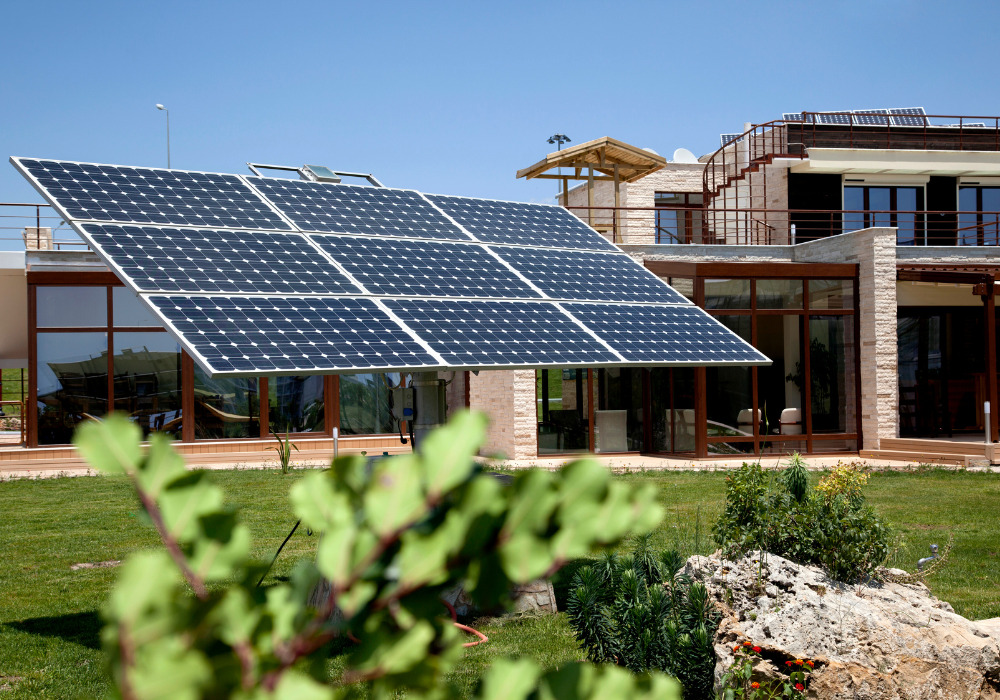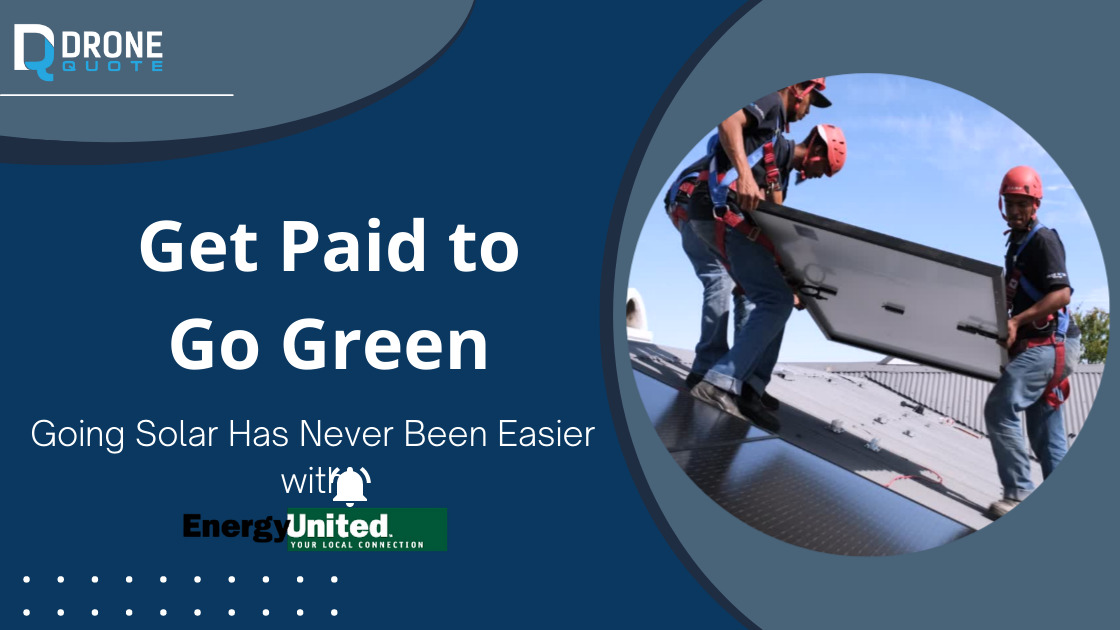Introduction
Welcome to our comprehensive step-by-step guide to installing solar panels with net metering through Shenandoah Valley Electric Cooperative. As the interest in renewable energy continues to rise, solar power has become an increasingly attractive option that not only saves you money but also contributes positively to the environment.
In this article, we will cover everything from understanding solar energy and net metering to navigating this exciting program’s eligibility requirements and application process.
Whether you’re a seasoned expert or just starting your clean energy journey, there’s something here for everyone.
| Key Takeaways |
|---|
| Solar energy is a clean, renewable power source derived from sunlight that can save homeowners money and contribute to environmental sustainability. |
| Net metering allows homeowners with solar panels to send excess electricity back into the grid for credits on their electric bills, making it an excellent way to reduce energy costs while contributing to greener practices. |
| Shenandoah Valley Electric Cooperative offers net metering programs for eligible customers who meet certain requirements and follow a simple application process. Hiring a reputable installer, undergoing site assessment and proposal process with necessary permits and paperwork before installation, connecting your system to the grid, etc., are crucial steps in installing solar panels with net metering through Shenandoah Valley Electric Cooperative. |
| Installing solar panels with net metering through Shenandoah Valley Electric Cooperative has numerous benefits, such as saving on energy costs, adding value to your property over time, and promoting environmental sustainability efforts while maintaining access reliability of electricity from the cooperative. |
Understanding Solar Energy And Net Metering
Solar Energy is the practice of converting sunlight into electricity, reducing dependence on traditional energy sources.
Definition Of Solar Energy

Solar energy is a clean, renewable power source derived from sunlight. Moreover, it’s generated through photovoltaic (PV) panels, typically installed on rooftops or other suitable locations to capture and convert the sun’s rays into electricity.
The beauty of solar energy lies in its abundance and sustainability. Additionally, the sun provides enough power to meet our global demands multiple times over. Unlike fossil fuels such as coal or oil, which contribute to harmful greenhouse gas emissions and environmental pollution when burned for energy production, harnessing solar power offers a greener planet by offering a carbon-free alternative for generating electricity.
How Net Metering Works With Solar Energy
Net metering is a system that allows homeowners who have installed solar panels to send any excess electricity generated by their panels back into the grid and receive credits on their electric bills.
Let’s say you install solar panels on your home; during the day, they generate more electricity than you need. Instead of letting that extra power go unused, net metering allows it to be sent back into the grid for others to use.
In Virginia, Shenandoah Valley Electric Cooperative customers are eligible for net metering when they install solar panels.
Eligibility And Application Process For Solar Panel Installation With Net Metering
Find out if you are eligible for solar panel installation with net metering through Shenandoah Valley Electric Cooperative. Furthermore, learn about the simple application process by continuing to read!
Eligibility Requirements For Shenandoah Valley Electric Cooperative
Customers need to meet certain eligibility criteria to participate in the net metering program through Shenandoah Valley Electric Cooperative. Here are the requirements:
- Customers must have an active account with Shenandoah Valley Electric Cooperative.
- The solar panel system that will be installed should be located within the cooperative’s service territory.
- Customers must own or lease a property with an installed solar panel system.
- The solar panel system should comply with all regulations and standards set by state and federal governments.
- Customers must submit an application and obtain all necessary permits to install the solar panel system.
By meeting these requirements, customers can take advantage of the benefits of net metering and enjoy lower energy bills while contributing to environmental sustainability efforts.
Applying For Net Metering

To apply for net metering with Shenandoah Valley Electric Cooperative, follow these simple steps:
- Ensure you are eligible for the program by checking the eligibility requirements on the cooperative’s website.
- Contact Shenandoah Valley Electric Cooperative and inform them of your interest in applying for net metering.
- Submit an application through PowerClerk, the online platform Shenandoah Valley Electric Cooperative uses to process net metering applications.
- Provide all required documentation, including your installation proposal and site assessment report.
- Wait for approval from Shenandoah Valley Electric Cooperative before proceeding with your solar panel installation.
- Once approved, work with a vetted installer to install your solar panels and connect them to the grid with net metering.
By following these steps, you can take advantage of this incentivized program that offers full retail rate credit for any excess electricity generated by your solar panels and help contribute to environmental sustainability while saving on energy costs.
Installing Solar Panels With Net Metering: A Step-by-Step Guide
To install solar panels with net metering, homeowners must choose a reputable installer, undergo a site assessment and proposal process that includes necessary permits and paperwork before installation, connect their system to the grid, and finally begin enjoying full retail rate credits for any excess electricity generated by their solar panels.
Choosing A Reputable Installer
Hiring a qualified and licensed contractor is critical to successfully installing solar panels with net metering.
To find a reliable installer for your solar panel project, it’s advisable to research different companies thoroughly. Look into their reputation by checking reviews from previous customers and asking for references.
You can also ask friends or family members who’ve installed solar panels before if they could recommend an installer they used. Additionally, consider checking companies like DroneQuote that connect vetted installers with homeowners interested in going solar.
Site Assessment And Proposal
Before installing solar panels, assessing your site’s suitability for solar energy production is essential. The first step is to find a licensed and reputable contractor who can perform an onsite inspection.
Based on their evaluation, they will propose a customized solution for your property that considers all relevant factors and meets Shenandoah Valley Electric Cooperative’s requirements for net metering eligibility.
They will provide a detailed proposal outlining system design options based on their learning during the site assessment.
Installation Process
Installing solar panels with net metering through Shenandoah Valley Electric Cooperative requires a thorough and detailed installation process. Here are the steps involved:
- Choosing a reputable installer:
- • Research and select a licensed and experienced contractor to install your solar panel system.
- Site assessment and proposal:
- • The installer will assess your property onsite to determine if it suits solar panel installation. They will also provide a proposal outlining the system’s specifications, costs, and expected output.
- Permitting:
- • You must obtain the necessary permits from your local government before installation can begin.
- Installation:
- • The contractor will install the solar panels on your property according to the design specifications outlined in the proposal.
- Inspection:
- • The Shenandoah Valley Electric Cooperative will inspect your system to ensure it meets safety and performance standards.
- Interconnection:
- • Once your system passes inspection, it can be connected to the grid through net metering.
Hiring a qualified installer ensures a safe and efficient solar panel system installation process!
Connecting To The Grid With Net Metering
Connecting your solar panels to the grid is a crucial step in maximizing the benefits of net metering. Here’s how it works:
- Solar panels generate electricity, first used to power your home or business.
- Any surplus electricity flows into the electrical grid through a bi-directional meter.
- The bi-directional meter tracks the energy you consume from the grid and what you send back into it.
- Shenandoah Valley Electric Cooperative credits your account at the full retail rate for the excess electricity your system generates.
- Over time, this credit can offset the cost of any electricity you need to purchase from the grid during periods when your system is not generating enough power.
By connecting to the grid with net metering, you can harness the power of renewable energy while still maintaining access to reliable electricity from Shenandoah Valley Electric Cooperative. Plus, by producing more energy than you use, you can help promote sustainability and contribute to a cleaner planet for generations to come.
Benefits Of Solar Panel Installation With Net Metering Through Shenandoah Valley Electric Cooperative
By installing solar panels with net metering through Shenandoah Valley Electric Cooperative, you’ll save on energy costs but also help contribute to environmental sustainability and add value to your property.
Saving On Energy Costs
One of the primary benefits of installing solar panels with net metering through Shenandoah Valley Electric Cooperative is the potential savings on energy costs.
With net metering, any excess electricity generated by your solar panels is returned to the grid and credited to your account at full retail rate credit.
This means that when you need additional electricity from the grid, you can use these credits to offset your bill.
In addition to saving money in the short term, investing in solar energy can also offer long-term financial benefits. The cost of traditional energy sources like coal and natural gas tends to fluctuate over time due to market conditions and supply shortages.
Contributing To Environmental Sustainability
Installing solar panels with net metering through Shenandoah Valley Electric Cooperative is a great way to contribute to environmental sustainability. Moreover, by generating renewable energy on-site, you’re not only reducing your reliance on fossil fuels but also decreasing greenhouse gas emissions.
Furthermore, you can inspire others to take action toward sustainable living by installing solar panels. Additionally, as more people adopt clean energy solutions like solar power, we can collectively reduce our carbon footprint and effectively combat climate change.
Adding Value To Your Property
Investing in solar panels with net metering not only saves you money on energy costs and helps the environment, but it also adds value to your property. Furthermore, according to a study conducted by the U.S. Department of Energy’s Lawrence Berkeley National Laboratory, homes with solar panel installations sell for an average of $15,000 more than comparable homes without.
Moreover, the study revealed that installing residential solar panels can increase a home’s resale value by up to 4.1%. Consequently, you not only benefit from reduced energy bills and increased sustainability practices, but you also make a smart investment in your property’s long-term value.
Conclusion
At DroneQuote, we are committed to helping homeowners in the Shenandoah Valley embrace the benefits of solar power. Moreover, with the increasing interest in renewable energy and the opportunity to participate in net metering through Shenandoah Valley Electric Cooperative, there has never been a better time to explore the advantages of solar energy.
Furthermore, we hope our comprehensive guide has provided valuable information on solar energy, net metering, and the eligibility requirements and application process for this exciting program. It is essential to understand these aspects as you embark on your clean energy journey.
![]()
Want To Go Solar?
Ready to positively impact the environment and save money on your energy bills? Well, look no further. DroneQuote is here to assist you every step of the way in installing solar panels with net metering. Moreover, our team of experts specializes in solar and roofing services and is dedicated to providing high-quality installations tailored to your specific needs.
Sign up today to schedule a consultation and discover how we can help you harness the power of solar energy. Moreover, with our expertise, let us guide you through the process. Firstly, we’ll assess your home’s suitability for solar panels. Then, we’ll handle the paperwork and ensure a seamless installation.
Take the first step towards a sustainable future by partnering with DroneQuote. Together, let’s make a difference by embracing clean, renewable energy and enjoying its numerous benefits.
